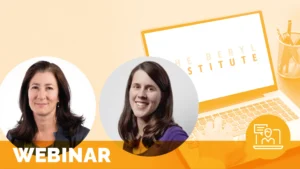Framing the Field of Patient Experience

Jason A. Wolf, Ph.D., President, The Beryl Institute
In recent years the concept of patient experience moved from the fringes of the healthcare conversation to the heart of all healthcare encompasses. Challenged by some as a fad, even in the face of emerging policy and growing financial implications, a shifting consumer mindset and a growing global movement of professionals committed to experience excellence converged to set the foundation for the framing of patient experience as a true field of practice. Join us in learning about the critical elements framing patient experience as a field, the key areas of strategic focus that help us to move the experience conversation forward and answer the call to action, identifying what we can do as individuals, organizations and as a healthcare system overall, to refocus the heart of healthcare.
Related content
-
 Culture & Leadership | Patient Family & Community Engagement | Staff & Provider Engagement
Culture & Leadership | Patient Family & Community Engagement | Staff & Provider EngagementThe “What Matters to You” Movement: Fostering Sustainable Change in Healthcare
Are you curious about how to ignite a movement within your organization that enhances care quality and workforce well-being and delivers a return on investment? Inspired by the global What Matters to You (WMTY) movement, this webinar will showcase successful improvement initiatives that have led to better quality outcomes, increased joy in work, and financial
Learn more -
 Patient Family & Community Engagement | Quality & Clinical Excellence
Patient Family & Community Engagement | Quality & Clinical ExcellenceWhat Healthcare Providers Need to Know About Newcomer Health Equity
Newcomers are a vital yet often misunderstood segment of the population that healthcare providers serve. This webinar explores the landscape of newcomer health equity in Canada and the United States, offering valuable insights into the challenges faced by this vulnerable group. Attendees will gain a deeper understanding of the various categories of newcomers in each
Learn more -
 Patient Family & Community Engagement
Patient Family & Community EngagementPatients’ Perceptions: A Group Differences Study Twelve Months Before and Twelve Months During a Worldwide Pandemic
The COVID-19 pandemic subjected healthcare systems’ to decreasing operational margins, enhanced regulatory scrutiny, and challenges related to patients’ expectations. Until now, there was a lack of empirical evidence studying patients’ perceptions prior to versus deep immersion into the pandemic. This quantitative non-experimental ex post facto causal-comparative study examined if and to what extent there were
Learn more
